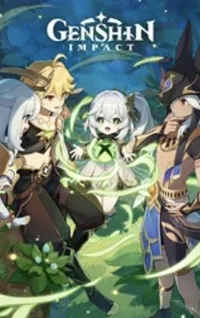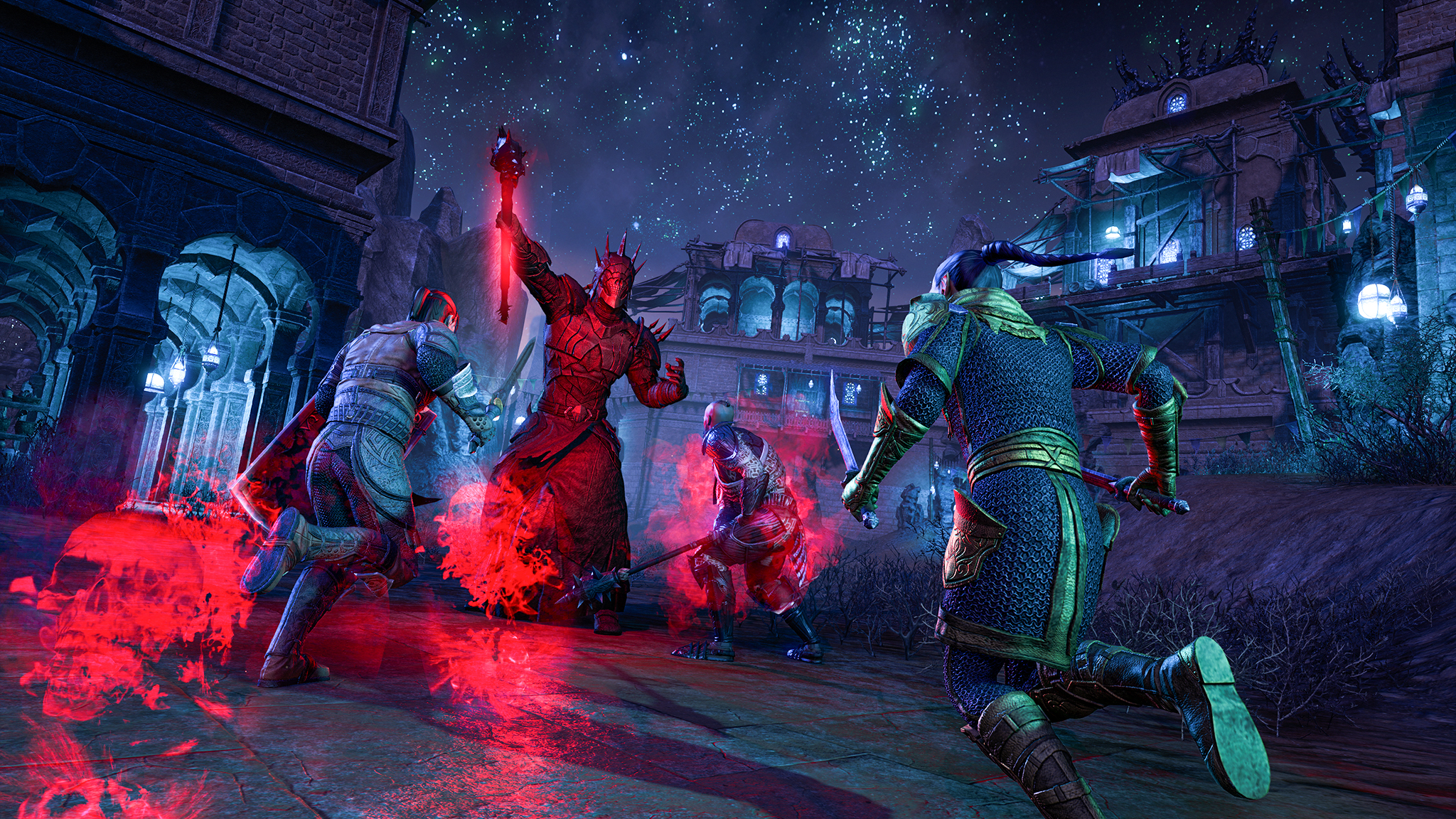One of PlayStation's biggest exclusives is dropping on Xbox in November, but what exactly is it? Here's an overview of everything new players need to know.
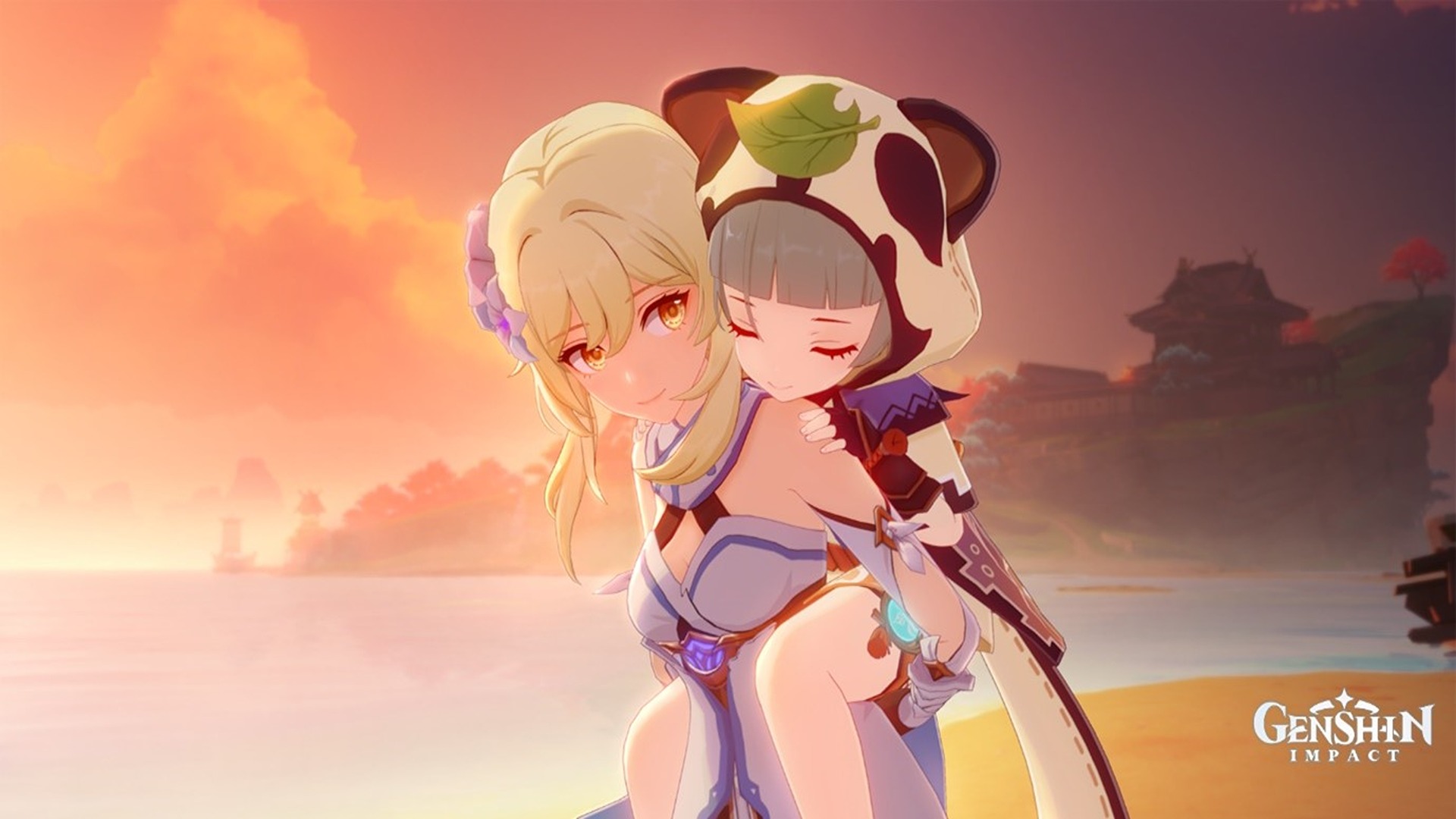
Earlier this summer, Genshin Impact was revealed for Xbox consoles finally, after a long period of exclusivity on PlayStation, PC, and mobile devices. It marked a huge win for the Xbox platform, which as of right now, doesn't really have any "gatcha" games to speak of.
"Gatcha" refers to a sub-genre of action RPGs where part of the progression layer revolves around acquiring or collecting characters. Those characters are usually anime-styled and come with their own plot threads, backstories, and unique gameplay styles. In this subgenre, characters are typically obtained by rolling on character banners, not dissimilar to loot boxes, as part of the collecting hook of the game. Those characters can roll with higher stats too, denoted by the amount of stars they have attached, and players can also roll for weapons and other items as well. The currencies to perform these rolls can be acquired through regular play, but can also be purchased for a premium — which underlines why Genshin Impact remains one of the world's most profitable titles of recent memory.
For sure, Genshin Impact is one of the biggest, if not the biggest global gatcha game available right now, with publisher HoYoverse spreading its wings across to other genres, and now other platforms with Xbox.
Genshin Impact will launch for Xbox Series X|S consoles on November 20, 2024, and comes with some bonuses too if you have Xbox Game Pass. But what exactly is Genshin Impact, and how does it play? Read on to learn more.
So, what is Genshin Impact at its core?
Voted the Best Mobile Game at Gamescom this year, Genshin Impact is a free open-world action role-playing game with "gacha" elements. The main storyline revolves around your character, as a "traveler," traversing the world of Teyvat, meeting lots of playable characters and cute creatures along the way. Your ultimate aim? To find your lost sibling who was cruelly snatched away by a mysterious entity. Genshin Impact arguably marked an inflection point for mobile gaming, owing to its "AAA" console-grade production values across visuals, storytelling, and music quality, on top of its industry-leading live service.
Forever changing, Genshin Impact is constantly updated for free, both with new regions, story threads, and new characters. Every 20 days or so brings two different character banners to roll or "pull" for, via the game's wishing system. By saving your primogems (in-game currency used for wishing), you can easily obtain your favorite waifus and husbandos without spending a penny. Obtaining this currency factors in how much and how often you play, but it's relatively easy to acquire via daily quests, events, and other endgame content. And the game does reward its fans quite frequently. Publisher HoYoverse dropped 1000 primogems on players to celebrate its Gamescom mobile award win.
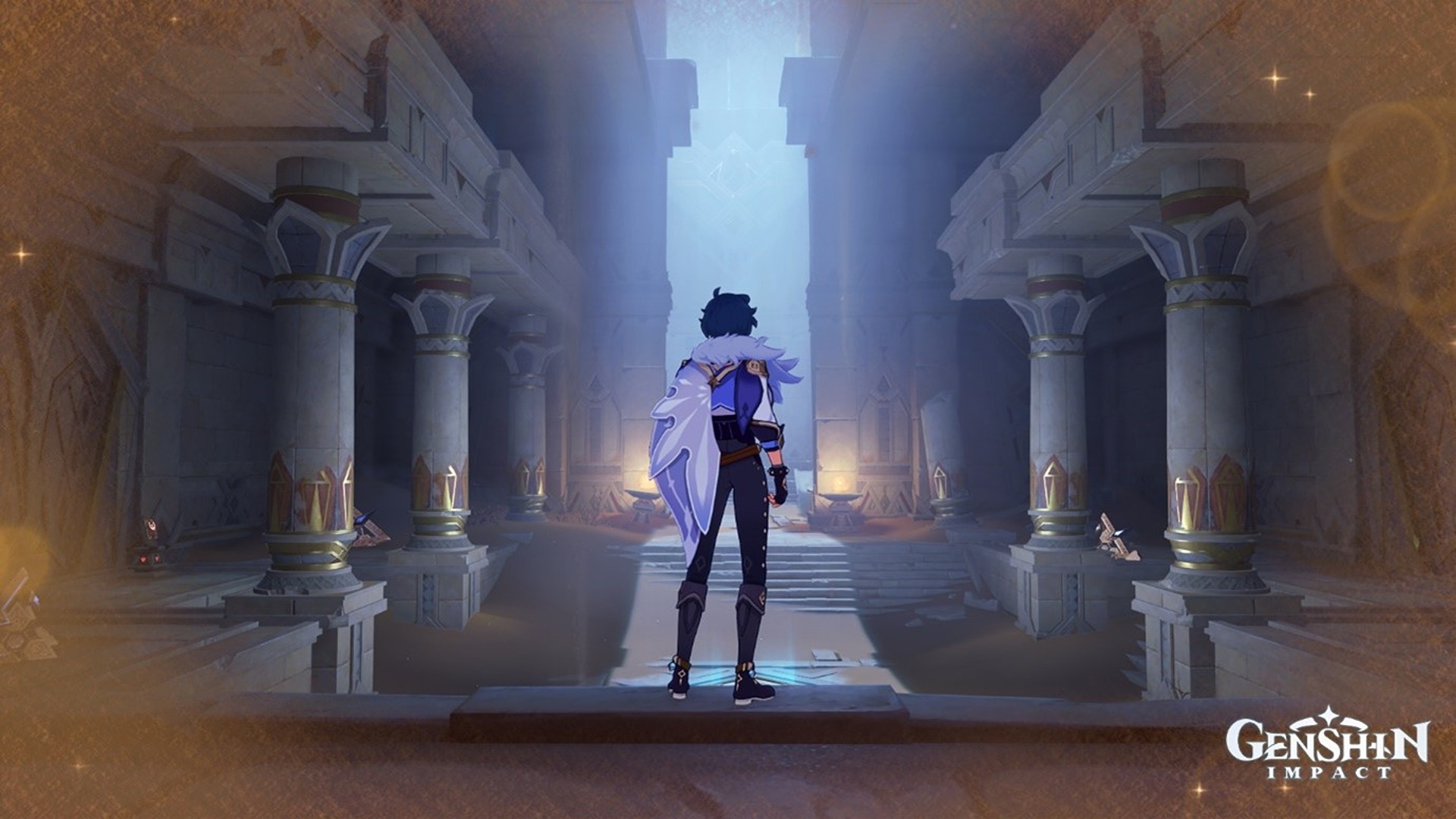
Stunning graphics paired with beautiful character designs, along with the hunt to collect your favorite characters make this game as popular as it is unique. Gatcha games of yesteryear typically didn't have the same quality bar for storytelling and visuals as Genshin Impact has, which arguably raised expectations for all mobile titles even beyond the gatcha genre. The contrast between fighting dragons and gods, listening to your new-found friends’ problems (and sometimes sharing your own grievances too), searching for new creatures, and participating in events and mini-games makes Genshin Impact feel less like a video game, and more like an immersive hobby you can enjoy alone or in shared experiences with friends.
All the latest news, reviews, and guides for Windows and Xbox diehards.
Each region in Genshin draws upon architectural and cultural inspirations from real corners of the world, coupled with award-winning music created by Hoyomix. The company's musical treatment reflects its cultural inspirations perfectly, often using traditional instruments to create its heavenly soundtracks. Music is very important in setting the mood of any game, and Hoyomix does this expertly whatever the situation; even the intro music before you open the door is inviting.
What is Genshin Impact's "wishing" system? What exactly does "gatcha" mean?
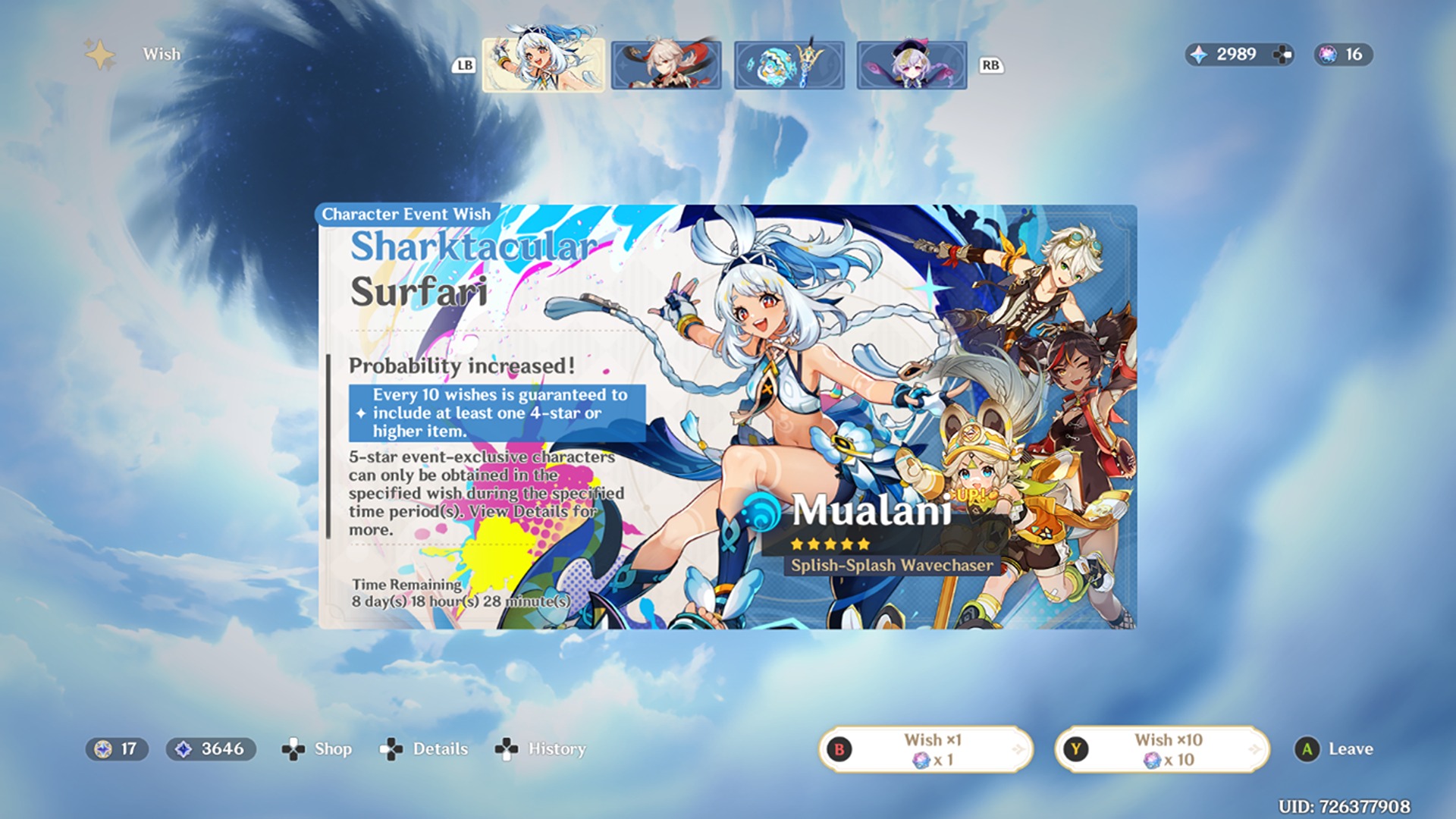
After playing a little bit of the story, players can unlock the main "gacha" element – wishing. In every update, there are a total of 4 character banners that are teased during special HoYoverse programs live-streamed on YouTube. During this time you can "wish" for your desired characters. But I would advise you to choose carefully. Each wish costs 160 primogems, and you may not obtain the 5-star character quality you want.
After 90 wishes, you are guaranteed a 5-star character; on either the standard banner (blue wishes) or the promoted banner (rainbow wishes). If previously you wished on a promoted banner and obtained a standard banner 5 star (e.g. Jean, Mona), you have a 100% chance of getting the promoted character in 90 wishes. If however, your last 5 star was a promoted character, you only have a 50% chance of success. This is the gamble.
The same principle applies to the weapon banners (although slightly different), which change depending on the characters. So, if you are terribly unlucky, the maximum wishes you’d have to spend would be 180, which is 28,800 primogems. Bearing in mind you only get a minimum of 60 primogems a day, this is a lot. Of course, you can buy them with money, but then that’s less of a gamble and more of a purchase. An expensive one, too.
This is why I prefer, and advise you to save your wishes for your favorite characters, ensuring you have enough to cover that potential 50/50 loss. Few things in Genshin Impact give you more satisfaction than getting that 5-star in just 10 pulls, or even better, two 5-stars in the same 10 pulls. The stats can be daunting, but there is a strange pleasure in taking the risk (don't get too addicted, though...). But as I said earlier, getting primogems for free isn’t that tough, so rest assured; you can be fully free-to-play and still thrive.
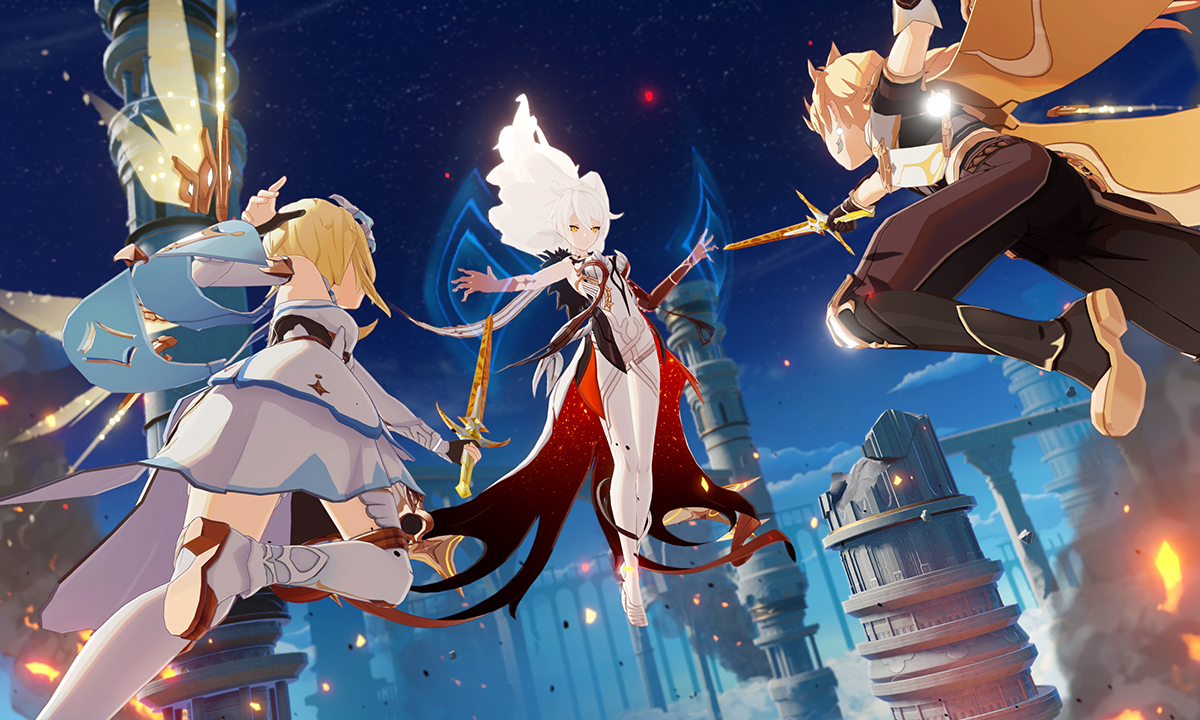
The other gacha element is the artifact system, which unfortunately is less rewarding. Artifacts (which I’ll explain more about later) are an important part of upgrading your characters, but rolling the right ones can be very challenging. It can feel tiresome and unrewarding to spend your resin currency on something that might prove to be useless. But nothing gives me more joy in life than rolling a crit damage circlet with crit damage, rate, and attack percent sub-stats! Resin sadly can't be acquired through play directly, but it does automatically replenish gradually over time. It can also be purchased via primogems, however, which you can acquire both through play and purchasing. You'll most likely want to save your primogems for actual characters, though, unless you're specifically trying to kit out your favorites.
When you do get a good artifact, with the perfect sub-stats, upgrading it is also a bit of a gamble. Five-star artifacts can roll an upgrade into any sub-stat five times, so most players know the pain of ending up with 20+% defense. Thankfully, you can recycle these ruined artifacts to get some currency returned.
There are other ways to progress your favorite characters too, beyond simply rolling. It is an RPG after all.
Character levelling and progression in Genshin Impact
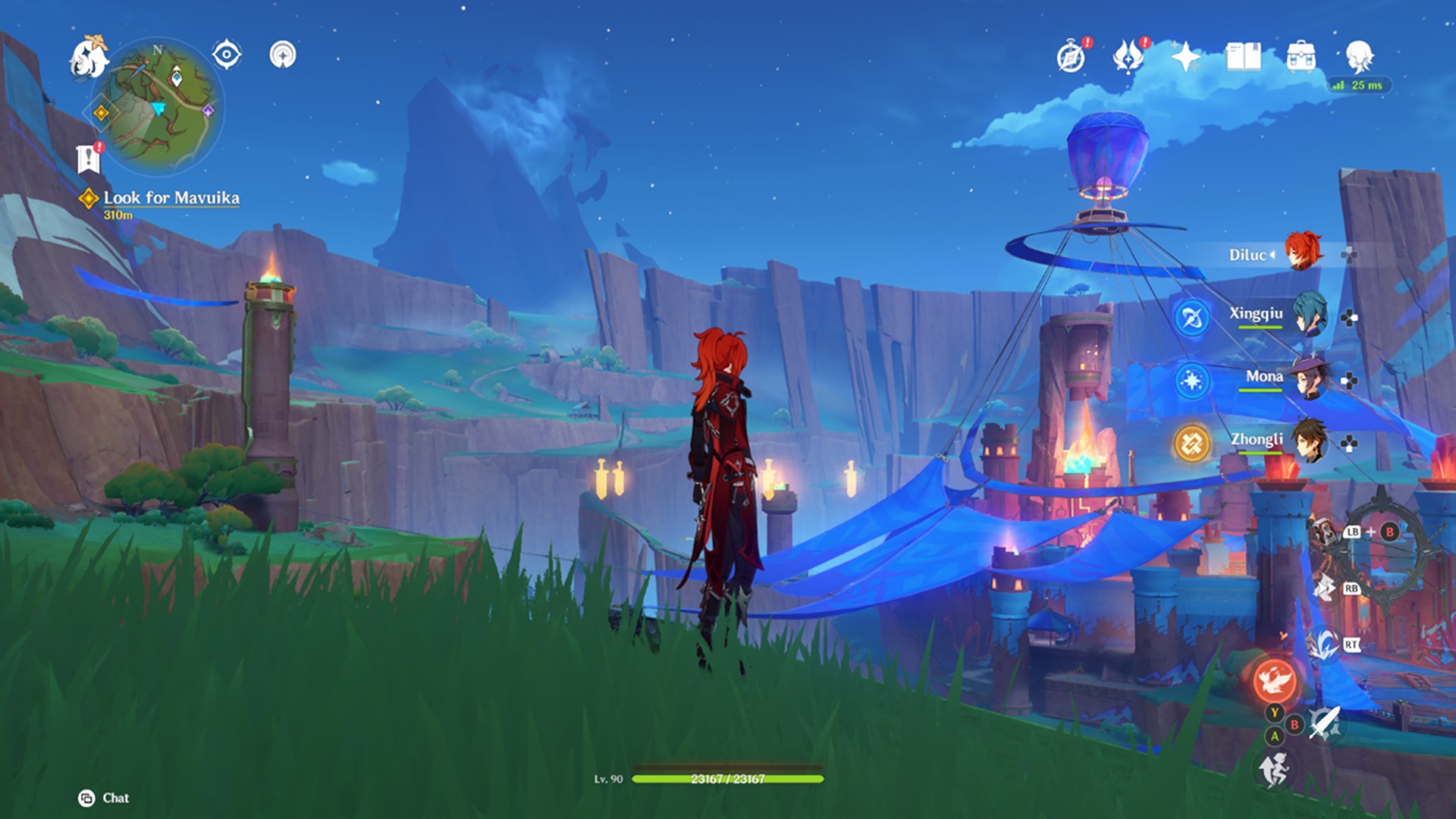
In Genshin, you do have your main playable character who serves as the protagonist of the story, but combat revolves around having a 4-character group. You can instantly flip between each party member on the fly, setting up their abilities to create spectacular combos. Characters typically have elements that can trigger status effects, and those status effects can combo heavily with corresponding elements, all of which are explained in-game. While leveling those characters up, it's good to know these four main points which are essential to having balanced teams. The first of these is the raw leveling up of those characters, which boosts their attributes. This increases your hit points, defense, and attack, to ensure your survivability.
The second area of upgrades is your weapon. There are five main weapon types in Genshin; claymore, sword, polearm, bow, and catalyst. Depending on your character’s weapon type, you can equip the best weapons suited to your character’s playstyle. Both the character and the weapon can be upgraded to a maximum of 90. But, as well as the weapon has a base attack, it will have another stat (e.g. elemental mastery) so choose wisely.
Best of all, none of the materials required for upgrading anything is time-gated (aside from unlocking the area). This game has a fast-track system so you don’t have to wait to progress through the story to use your best characters.
Next? Artifacts. Each type of artifact has a 2-piece and 4-piece set bonus, so deciding which set is ideal is the first step. For example, if you’re using a Pyro-element main damage dealer (also known as DPS), a common choice is the Crimson Witch of Flames artifact set which gives a Pyro damage bonus. The next step is rolling them (which is easier said than done) by fighting in a domain and using your resin. There is also the strongbox system, a way of recycling awful artifacts you don't need. Instead of using resin, you offer three 5-star artifacts and gain one 5-star artifact of whichever set you choose. By utilizing both of these ways, it makes it a little easier to exploit one of the most challenging mechanics in the game.
Finally, there are talents. This is the more direct way of making characters more powerful. You may enhance your basic attack, skill, and burst to level 10, (can be more depending on constellations) but bear in mind this can get expensive and time-consuming. Towards the later levels, each talent requires special materials that drop in Trounce Domains. You can only get rewards from the bosses in there once per week. And on top of that, you’re not guaranteed the exact drop you need. Each boss has three different rewards and it gives them away at complete random. You could gain one of each or two of one that you don’t need! So expect to take time perfecting your characters.
It can be a little challenging to adjust to these four systems, but once you do the rewards are sweet. HoYoverse has made very few changes to the character mechanics. Balanced characters are key to mastering content like the abyss (which are endgame domains that get progressively harder). Those also give you primogems. It’s all part of the fun.
What does endgame content look like in Genshin Impact?
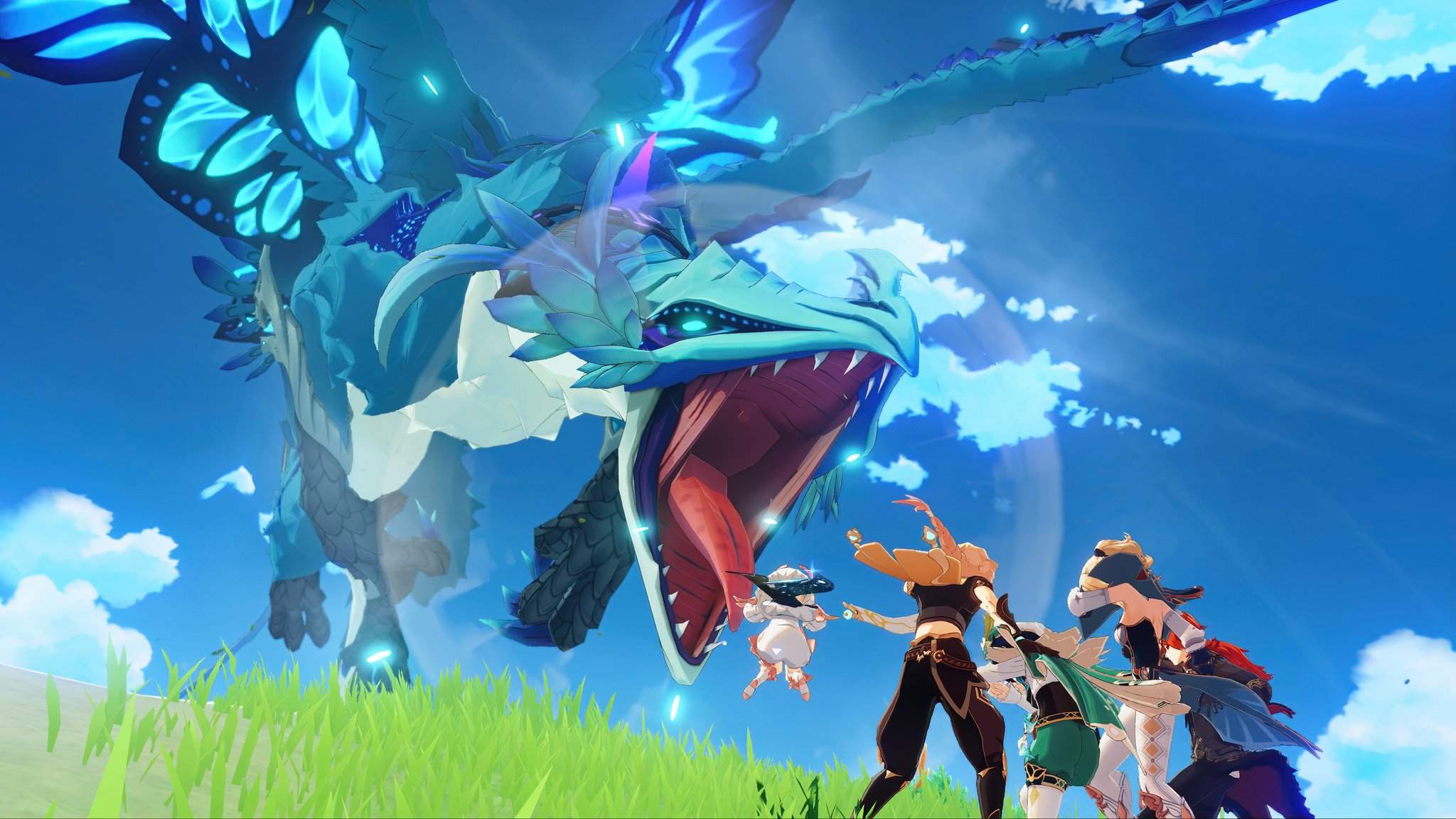
We touched on the trounce domains, but even after you finish the main story quest, it is far from over. From playing hide and seek in the yearly Windtrace event, to scaling the floors of the increasingly difficult Spiral Abyss and the fairly new Imaginarium Theater, there’s always something to do. Both of these are combat events that the higher levels will be near-impossible to complete as a new player. For the hardest stage of Imaginarium Theater, you need at least 22 level 70 characters that correspond to the right element. And as I mentioned earlier the time and materials needed to build just one character, it is a grind.
Exploring the world map and opening dozens of treasure chests might sound boring, but by doing this players can earn lots of primogems. The game also has a sandbox-type mode, namely the Serenitea Pot. This housing system gives you a lot of freedom, allowing you to place furniture and characters in one of the realms available. Every character has friendship experience, and some of the rewards for gaining this are unique voice lines which are only heard in the Pot. Not to mention their story quest or hangout event, which gives you a unique and close experience with the character.
Genshin Impact drops on Xbox on November 20, 2024
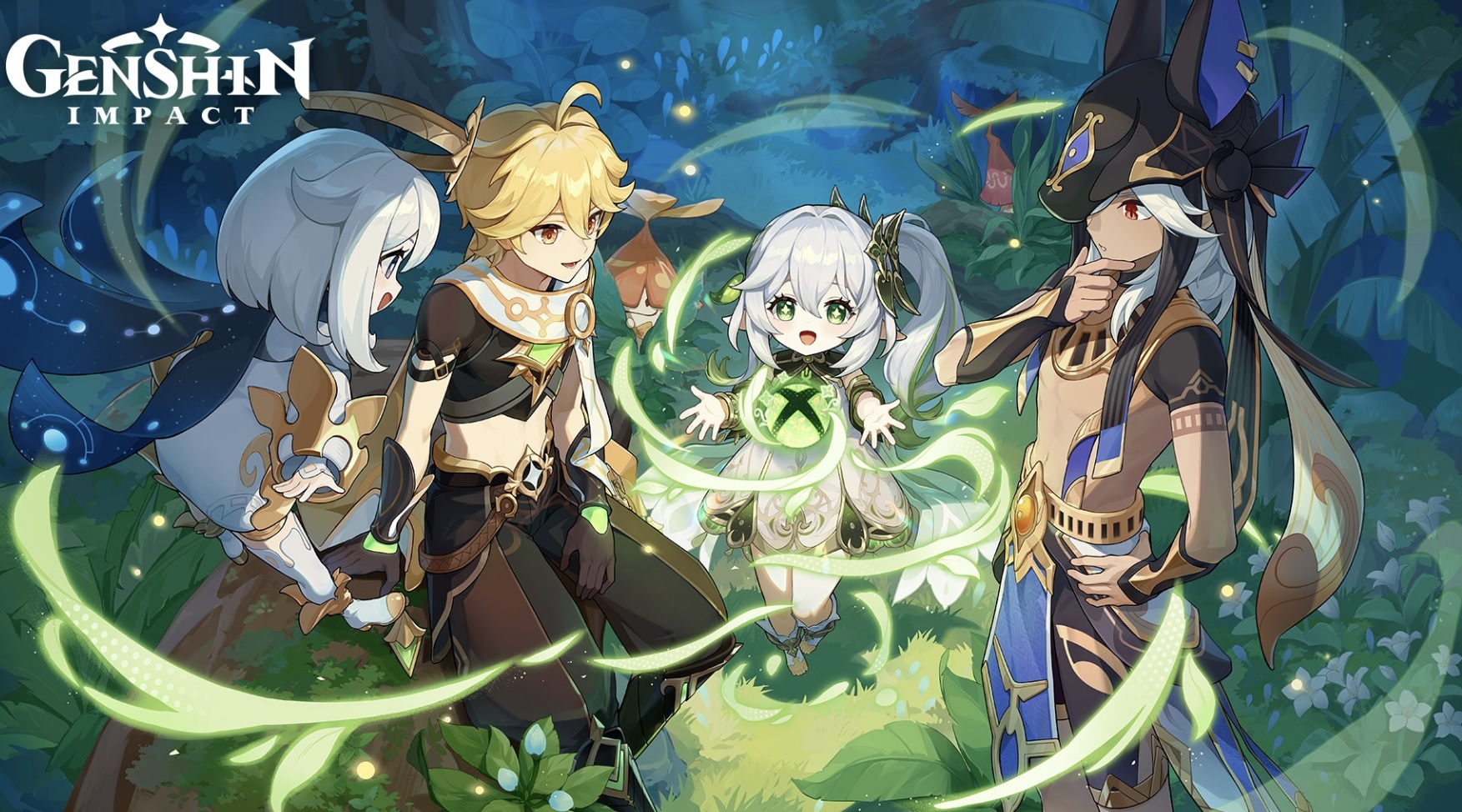
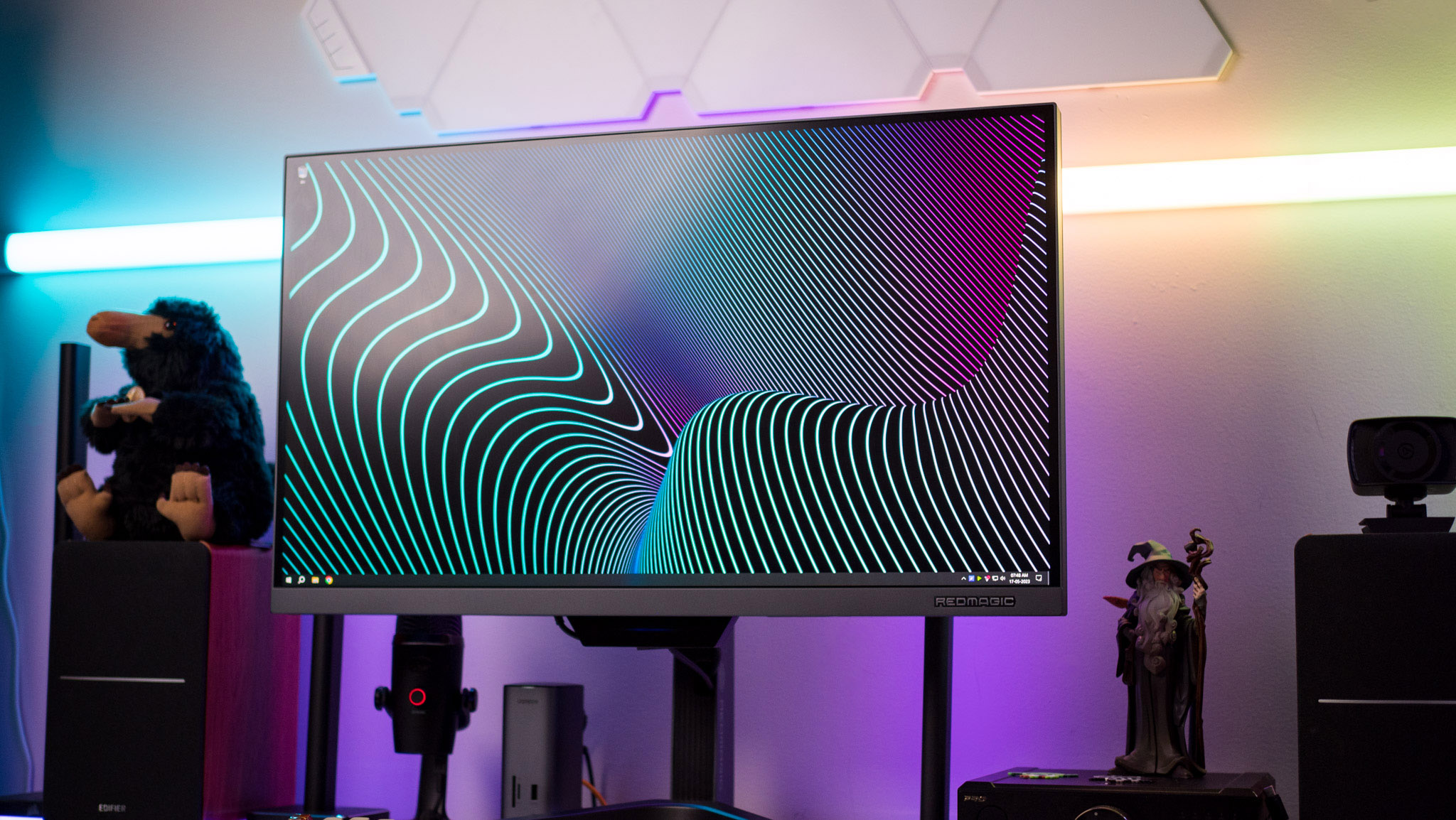
• Best Xbox / PC headsets in 2024
• Best upcoming Xbox / PC games
• Best Xbox controllers
• Best Xbox accessories
• Best small gaming PCs
• Best gaming laptops in 2024
Genshin Impact is a vastly huge game, and while it does have some time gating and premium currencies, you can experience everything the game has to offer without spending a penny.
Genshin Impact has been something of a trailblazer for modern "everywhere" games, extending onto mobile devices, but now also PC and consoles. Its visuals and sound treatment put it there with AAA titles, and its story delivery is evocative and memorable on a level typically not associated with "mobile" games. Its live service is perpetually updated with new areas and events, and new character drops make the news cycle for Genshin Impact perpetually exciting.
It's great that Genshin Impact and HoYoverse games have finally started coming to Xbox, and it bodes well for other HoYoverse games like Honkai: Star Rail and Zenless Zone Zero coming in the future too.
So, if you want to experience beautiful scenery with a refreshing story (and gambling if you dare), Genshin Impact is waiting. You can grab the game now on Android, iOS, and PC, and log in to your account on Xbox when it launches later on as well.
Genshin Impact is finally arriving on Xbox on November 20, 2024. Players on Xbox Game Pass will be able to get exclusive in-game bundles on day one, as well as with every subsequent major version update.
See at: Xbox Store | HoyoVerse (PC)

Mia Skye is a Windows Central contributor, covering gaming and tech. As an unashamed Genshin Impact, Honkai: Star Rail, and Valorant addict, Mia's editorial focus revolves around service games, although she's been known to immerse herself in single player titles. To that end, her favorite games also include Ōkami and Nier: Automata. She is also a shameless Cloud Strife stan.

